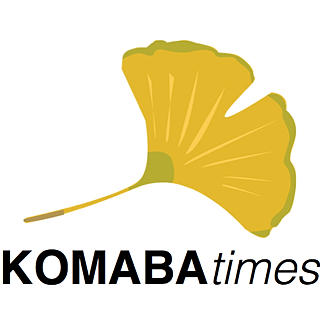What Education Teaches Us
- Komaba Times
- Aug 21, 2013
- 4 min read
Updated: Oct 9, 2019
By HAOSHAN WU

Family photo of AIKOM students at the AIKOM completion ceremony. Photo by Ken Kohlhase.
If I get to define, AIKOM (Exchange program in the University of Tokyo, abbreviation for Abroad in Komaba) is my first time studying abroad. I studied in Taiwan before. I enjoyed it greatly with so many Chinese friends surrounding me, and no language or culture barriers with local people, but I never considered it as my real study abroad experience.
Family photo of AIKOM students at the AIKOM completion ceremony. Photo by Ken Kohlhase.
AIKOM was totally different for me, the moment I knew I was accepted, I felt excited about this program. Not only because my previous trips to Japan were awesome and I dreamt of living in Tokyo for so long, but I was also looking forward to studying with students from all around the world.
Nowadays studying abroad for Chinese students is very common. But what is also very common for most of them is the "Chinese bubble" -- they always stick to their own group, seldom getting out of it. Similar behavior happens with students from other countries, too, but this limits their circle of friends. I am very happy AIKOM is well mixed, we don't really have the “language bubble.” We stayed together as a whole, which meant we had more opportunities to get to know each other and each other’s culture well.
Since we were in an exchange program, I always asked myself what we got from the exchange, what's the point of culture exchange, how this experience will help us in our life…. After I finished studying in the AIKOM program, I asked myself what I gained on the flight back to Beijing. It is really hard for me to express everything in words how much I have gained during this year, and I know "a lot" won’t suffice. But here I want to share how I view education before and after. Because this year is one of the most important part of my education as well, maybe not academically but mentally.
There are a lot of factors that make people who they are now, and education is definitely one of the most significant elements. There are lots of things in the world which surely you shape, but there are always outside frames shaping your mind and behavior. Education is one of them. We may know what we want to be, but the education system along with the ethics of the society tells us what we are suppose to be or what is better.
"Accepting and following the pre-existing patterns are what we mainly do.
I am one of them,
at least not entirely an exception"
One of the most extreme examples might be the Chinese education system. With such a huge population, it seems that China has no better choice than using exam and ranking based system. This system narrows down the choices people can make. By being taught to be competitive all the way, we can end up studying in a nice university but student and parents blindly believe this is the "only" way that is the perfect way without questioning if it fits or not. It makes us into "competing elites," rich with knowledge and skillful in exams but relatively lazy when it comes to real thinking, especially critiquing. Accepting and following the pre-existing patterns are what we mainly do. I am one of them, at least not entirely an exception. I was sure my AIKOM classmates were going to be different in many ways, but how different?I had some idea but only stereotypes from what I had read, and no real personal experience.
During this year the AIKOM students impressed me a lot. Sometimes we discussed about this very topic on education, but mostly I learned this during the time we spent together just hanging out. As some of them said, "education is about making people smarter," "education is about helping people," "education is about opening your view," "education is about telling you how to be critical." I cannot agree more.
Perhaps what impressed me most was the other students’ critical thinking skills. Sadly that’s what I had lost most during my education. After several years of information-stuffing education, some of us gradually lost our curiosity and the ability to question and instead gained the skill to know something perfectly without questioning it. Education should inspire people to think, to critique, to find out what might work better. If education stops people from thinking, is it different from an obscurantist policy? Higher education should be the chance to use our brains to question and critique things, and to make our minds clear of what we want.
"Education contributes to who you are,
but it’s still your own job to become
who you are"
I have also learned to think maturely and independently. Many of the other AIKOM students, especially western students, looked like they were playing a leading role in their own life. Compared to them, I seldom think that much of my own life, and I feel more attached to family both financially and mentally. Maybe it was just laziness, but now it’s time for me to face up to my own life, not be complacent about being the girl who thought she would never be apart from her parents. Education contributes to who you are, but it’s still your own job to become who you are.
Studying abroad as an AIKOM student was really an once-in-a-lifetime experience. Studying abroad made me think about my own identity -- what makes me now, what makes me different, my country, and my culture. After studying abroad we know “who we are” better than before.
Haoshan Wu was a 2012-13 exchange student to the AIKOM program from Fudan University, China.





Comments